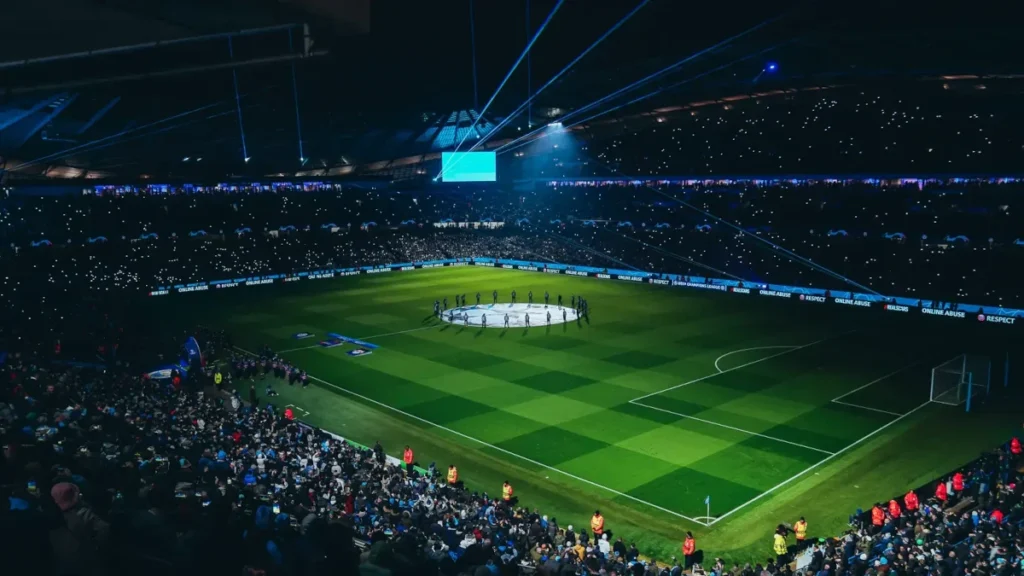New Champions League Format: Get ready for a whirlwind of change, football enthusiasts! UEFA has just unveiled a monumental alteration to the Champions League set to kick off in 2024/25. This groundbreaking move has sent shockwaves through the footballing universe, sparking a frenzy of excitement mingled with a hint of apprehension. The age-old norms are in for a major overhaul in the newly announced Champions League format.
Shop quality jerseys from Goal90.shop
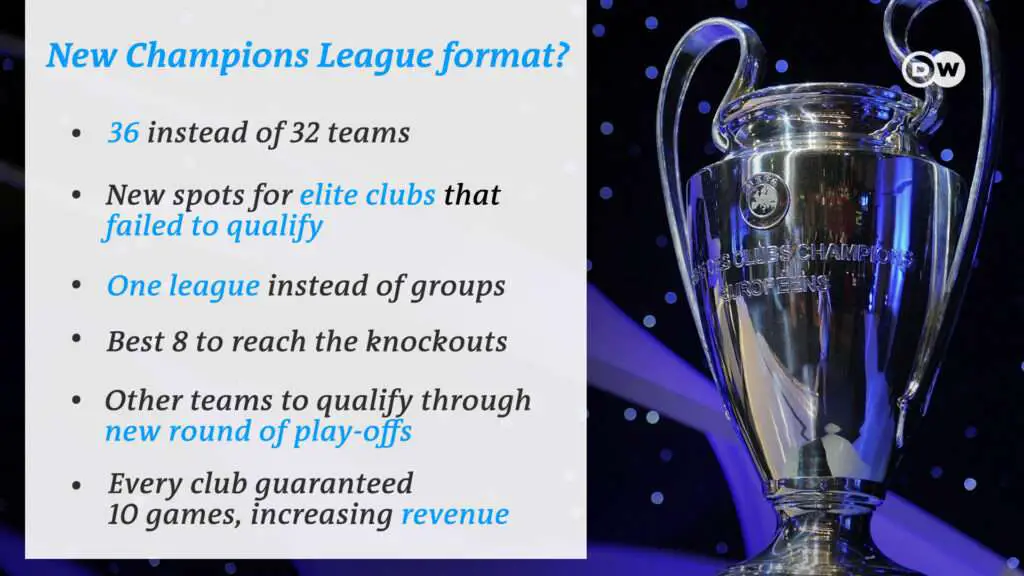
How Many Teams Will Be Playing?
Hold onto your seats! The Champions League, typically home to 32 top-tier teams, is about to expand its lineup by welcoming four more contenders, totaling a staggering 36 teams. While this sounds like a grand spectacle, some voices in the footballing community worry it might dilute the competition’s intensity and prestige.
What Is the New Champions League Format?
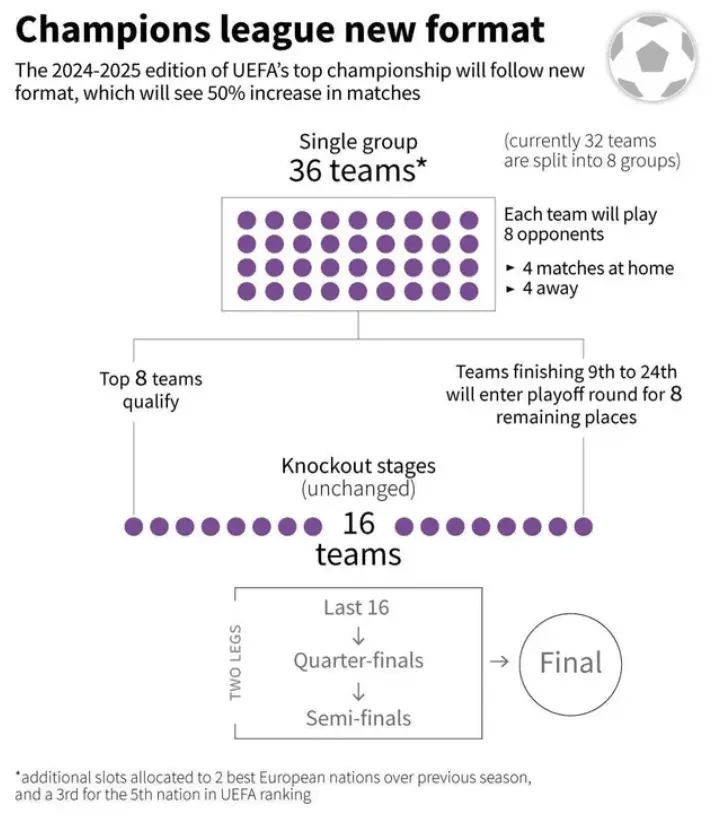
Say goodbye to the usual script! UEFA is rewriting the rules by introducing a single league table system. Each of the 36 teams will dive into eight games, played both at home and away. But this shift has sparked debates about whether it will elevate the tournament’s thrill or perhaps strip away its exhilarating unpredictability.
1. A Game-Changing Football Revolution
This seismic shift feels like a brand-new era for European club football. While some cheer for this transformation, others fear it might tamper with the very essence that made the tournament iconic. The discussions around the new Champions League format are heating up, dividing opinions between those who see it as a progressive step and those concerned it might rob the tournament of its allure.
2. New Structure, New Doubts: Inspired by Chess
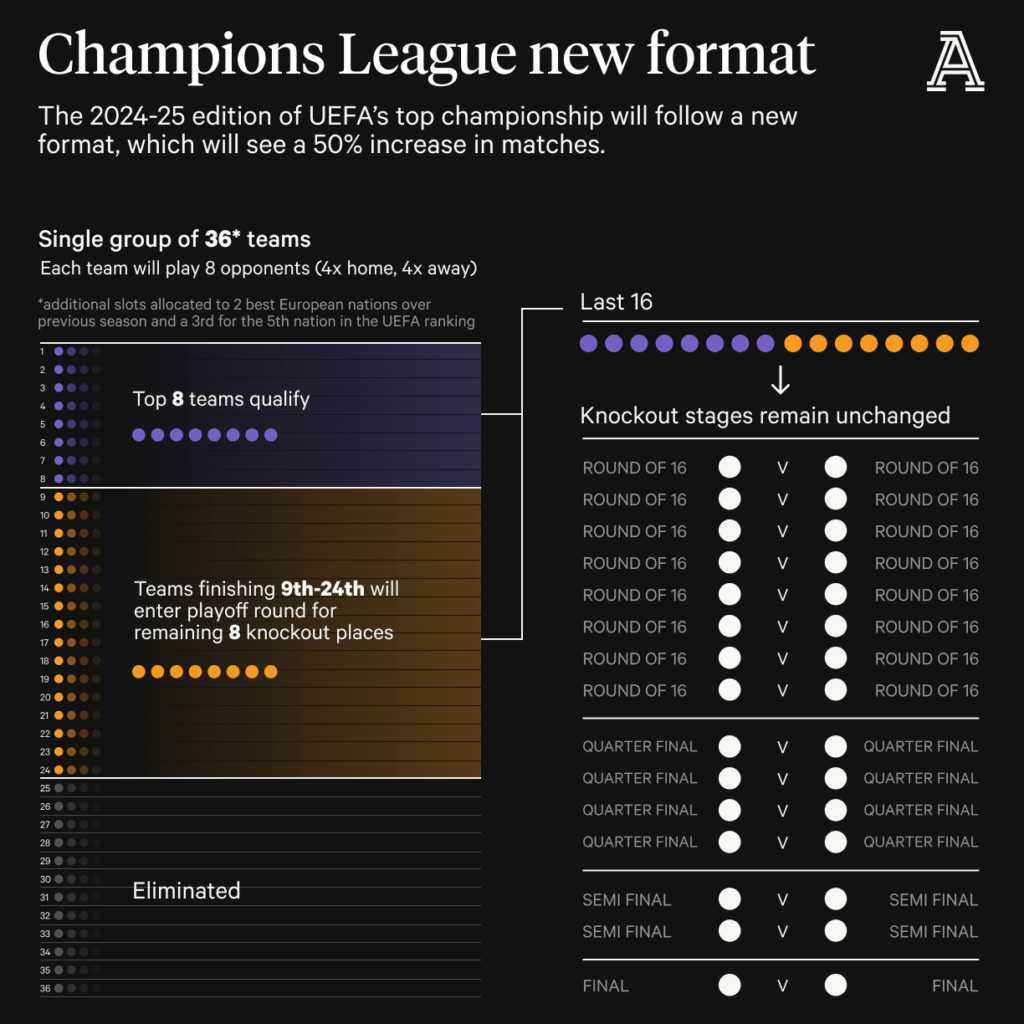
This transformation, inspired by the complexities of chess tournaments, aims to gather all 36 clubs into a single league table showdown. In the new Champions League format, the 36 teams will be divided into 4 pots. The teams in the different pots will be placed according to their coefficient rankings. So, pot 1 will have the reigning Champions League winners and 8 other clubs with the best coefficients. The other teams will be accordingly divided into Pot 2, Pot 3, and Pot 4.
3. Who Plays Who?
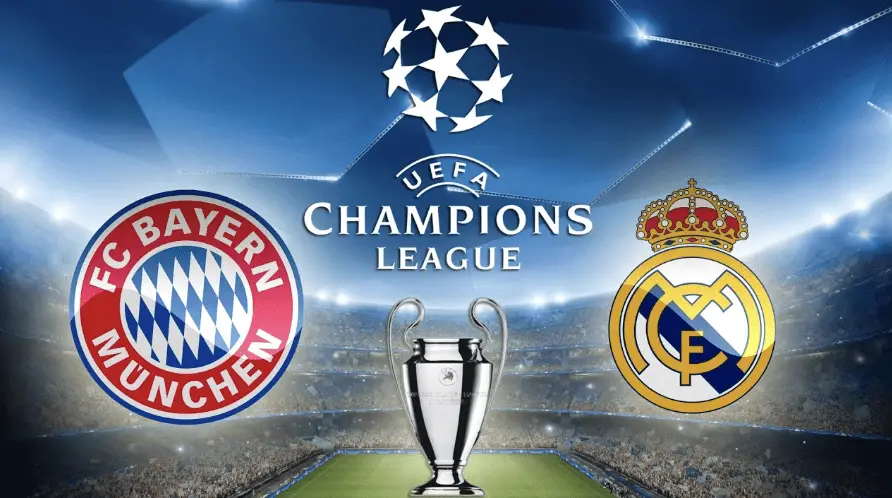
Each team will play 8 matches, 4 home games, and 4 away games. Each team will play 2 teams from each pot, hence the big teams will be facing each other in the group stage, as well as less stronger teams from the other pots. The format seems exciting for the fans yet, doubts linger in the air. Some ponder whether fewer matches might dampen the tournament’s excitement and the fierce competitiveness that fans have grown to adore.
3. A Different Path to Glory: League Phase and Mixed Feelings
Following these eight intense matches, the top eight teams secure direct passage to the next round. The teams from the 9th to 24th on the table lock horns in a playoff battle, fighting for the remaining 8 spots in the round of 16. Thereafter, the knockout phase is like the old format – 2 legged ties in the RO16, Quarter Finals, Semi-Finals, and the final.
Unlike the old format, the group stage will be completed in January and not December since the teams play 8 games instead of 6 in the group stage.
The new Champions League format has stirred discontent among certain sections of fans. The concern centers on whether a greater number of games and regular face off-of big teams might rob the tournament of its adrenaline-pumping moments that have long been etched in footballing history.
Why Has UEFA Changed the Old Format?
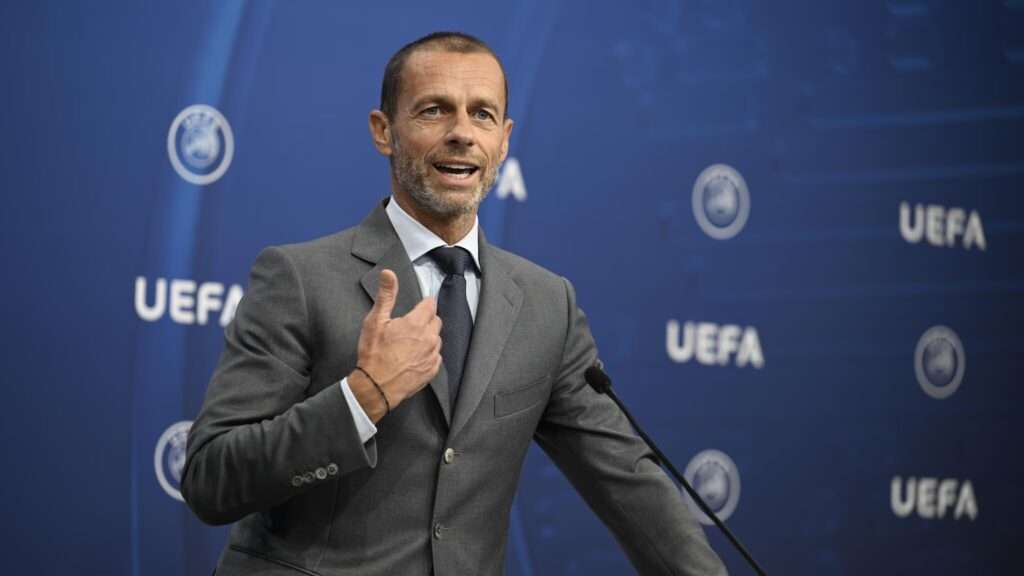
UEFA’s rationale behind this overhaul stems from their desire to inject more excitement into the sport and provide fans with additional matches. But skepticism persists. Some apprehend that these changes might prioritize financial gains over preserving the tournament’s heritage and the authentic footballing experience. Since big teams will be facing each other more often, the audience attraction will be much larger, resulting in better revenues for UEFA.
Conclusion
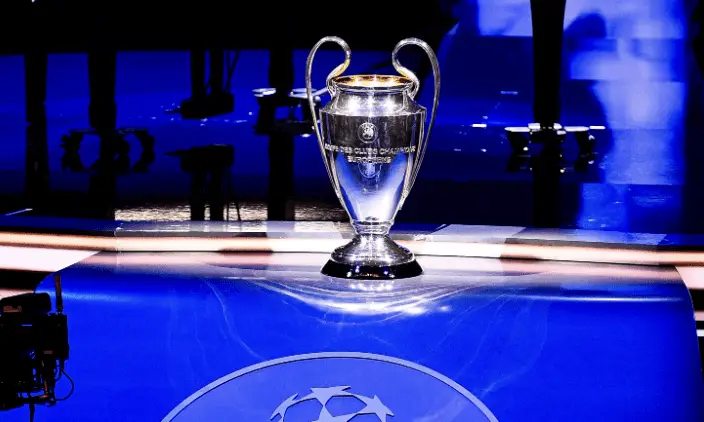
The Champions League is bracing for a colossal transformation, and it is stirring a cauldron of emotions among fans. While some view it as a leap toward progress, others worry it might strip away the very essence that made it a spectacle. UEFA’s ambitious vision has ignited fervent debates, raising pivotal questions about whether these changes will elevate the tournament’s thrill or perhaps erase its distinct charm. Football enthusiasts await a new era, hoping for more excitement while fervently praying that the new Champions League format will not erase the magic that has made the competition an unparalleled spectacle in the world of football.

